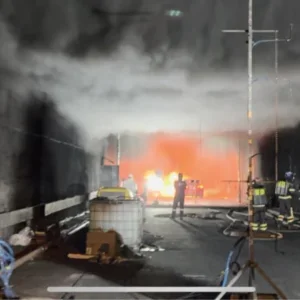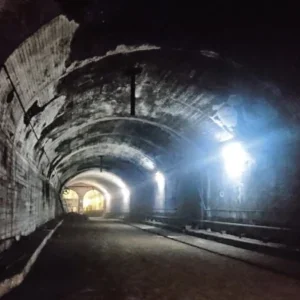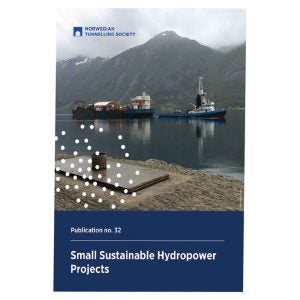The inspiration came from watching the industry and identifying a gap,” says Roger Bridge. “At that time I was the BTS chairman and I looked around, but there was no recognised tunnel-specific survey training available.
“Mining engineers have a better understanding of surveying, especially underground survey techniques. Some degrees don’t even include surveying in their programmes, so we decided to develop a tunnel survey training course through Tunnel Skills and using the excellent resources available via the industry.”
The Tunnel Survey Course is a new five-day course designed to equip junior staff with no tunnelling experience and engineers with the surveying skills and knowledge required to enable them to safely and competently work in the tunnelling environment. Spaces have been purposefully limited to a maximum of twelve candidates to ensure full hands-on participation. The Tunnel Survey course is aimed at those who have had some experience of operating total-stations, automatic (rather than digital) levelling instruments and may include civil engineers, surveyors and surveying technicians, graduates, apprentices or technically experienced people who are all new to the tunnelling environment.
“Last year we ran a pilot survey course through Tunnel Skills and following a discussion with Tunnel Skills chair, Tom Lane we developed together the content of the course, which is in on-going development,” says Bridge.
Lane explains, “The Tunnel Survey Course was on our minds for several years, as many graduates come from university and they only have an academic background, so it’s important to instruct them how to use modern surveying equipment when they enter the tunnelling industry.
“We have brought together people who have engineering and surveying backgrounds. We also involved the survey equipment company SCSS and they were very supportive in providing the equipment for this course.”
Eryl Richards, chief surveyor for Dragados-Sisk JV (DSJV) on Crossrail C305 was one of the volunteer teachers during the pilot course in 2017.
Regarding the reason it has taken so long to create a survey course, Richards says: “My feeling is that the industry does not want to acknowledge the worth of good surveyors in establishing good practice and money saving abilities.
“I believe that it’s important to develop survey skills as they can give surveyors the confidence to work under pressure in certain conditions that may affect the results of the project. The industry is moving on and some survey skills are required to keep the costs down and efficiencies to a maximum level. Old and established techniques are still relevant on small sites and are supplemented to the new technology.
“Safety, pre-planning of the alignment, actual control of the alignment, monitoring and coordinating both surface and underground movements, all reduce costs from excess excavation and misalignments, and enable complex shapes to be built in SCL without any delays and in a safe manner.”
Richards adds that surveyors are needed as “a post within the industry not a tag on”.
“In the past, engineers have been forced to undertake the setting out tasks, which are the foundation of projects, and to manage mistakes made at the beginning,” he says. “Being a mine surveyor originally implied responsibility for helping in relevant duties like planning and building the whole project. Engineers were responsible for the running of the works and the logistics.”
Regarding the cost of the Tunnel Survey course, Richards says: “We are fortunate to be helped by the Tunnel Skills corporate supporters and Paul McArthur of SCCS. They provide some equipment and resources for the setting up of the course. Being a pilot programme, the course was free last year while this year the cost is GBP 400 [USD 530] per attendee”.
Looking ahead, Bridge says that it would be great to see a qualification at the end of the course. “Of course we are looking at a lot of opportunities to provide an excellent offering,” he adds.
Mark Leggett, BTS chair adds that the BTS is constantly looking to improve and extend their education and training offering. “The Tunnel Survey course was identified as a gap in the industry and we are very pleased with the success of the course,” Leggett says.
“We would like more engagement with industry and clients on what their training needs are and how the BTS could assist with that development.”






